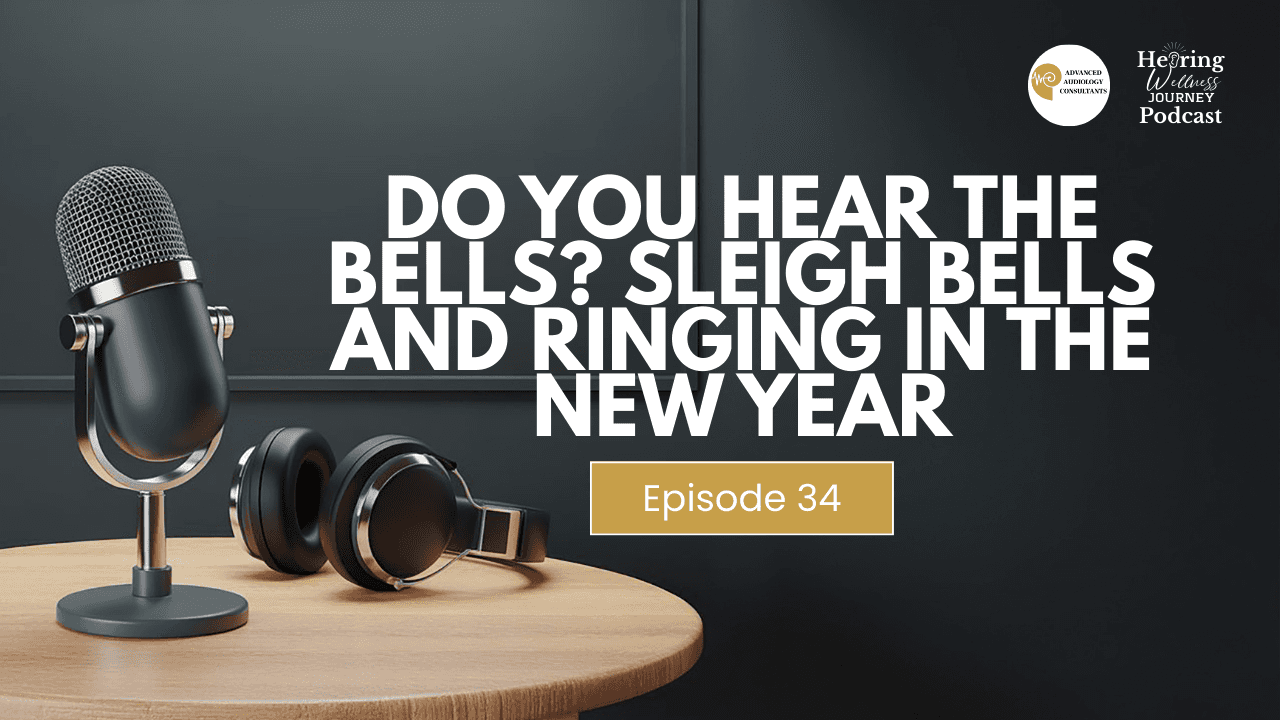Dawn Heiman, AuD
|
Jun 12, 2025
|
2 min read
Can Seasonal Allergies Affect Your Ears?
As spring approaches in Chicago, you may start to notice the signs of seasonal allergies creeping in. Grass pollen peaks from May to June, and ragweed pollen typically increases toward the end of summer into fall.
While most people associate allergies with runny noses and itchy eyes, they can also cause less obvious issues related to your ears. You might experience muffled hearing, persistent ear pressure, or fluid buildup without realizing these symptoms stem from your allergies.
If you’re experiencing seasonal allergies and symptoms related to your hearing that have raised some concerns, you’re not alone. It could be time to consult a professional for your best hearing health so you can enjoy the sounds of summer without the symptoms.
How Seasonal Allergies Affect Your Ears
Seasonal allergies are often triggered by pollen from trees, grasses, and weeds. When you inhale these allergens, your body's immune system responds by releasing histamines.
These histamines can lead to inflammation and congestion, which may impact the Eustachian tubes, small passageways that connect the middle ear to the back of the throat.
There are several symptoms to look out for if you’re concerned that your hearing health is affected by the increased pollen count.
Muffled Hearing
One common ear-related symptom of allergies is muffled hearing, which can occur when fluid builds up in the middle ear due to inflammation. This fluid can interfere with the conduction of sound, making it difficult for you to hear clearly.
If you notice that sounds seem distant or muted, it may be related to an allergic reaction rather than a primary hearing issue.
Ear Pressure and Fullness
Similarly, you might feel a sensation of fullness or pressure in your ears during allergy season.
This discomfort usually results from Eustachian tube dysfunction. Allergy-related inflammation can prevent the tubes from opening and closing properly, which means they are unable to properly equalize the pressure in your ears. This can result in a feeling of fullness, similar to what you might experience when you’re on a plane at high altitudes.
Fluid Buildup
In some cases, your body may produce excess mucus or fluid in response to allergens, which can accumulate in the middle ear.
This buildup can lead to infections or additional pressure-related discomfort. If you notice pain, fever, or drainage from the ear, these signs could indicate an ear infection, which may require medical attention.
When to Consult a Professional
While experiencing temporary muffled hearing and ear pressure can be common during allergy season, it’s essential to differentiate between what’s typical and when you should seek professional help. If you experience any of the following, contact a professional as soon as possible.
Persistent Symptoms: Muffled hearing or pressure that lasts more than a few days or worsens over time.
Pain or Discomfort: Severe pain or persistent discomfort in your ears, which may indicate an infection or other auditory problem.
Changes in Hearing: A sudden change in your ability to hear or frequently experiencing interferences in clarity.
Signs of Infection: Accompanying symptoms like fever, swelling around the ear, or discolored discharge could be signs of infection.
Manage Your Allergies and Hearing Health Today!
Seasonal allergies can affect far more than your nose, with ear-related symptoms like muffled hearing, pressure changes, and fluid buildup being common reactions.
It's crucial to listen to your body and recognize when seasonal symptoms escalate beyond typical reactions. If you experience persistent discomfort, seek help from a hearing care professional to ensure your auditory health is preserved and to rule out any serious conditions.
Taking control of your allergies not only improves your overall well-being but can also alleviate related issues that might impact your ears.
If you’re concerned about your hearing as the pollen count rises this summer, you’re encouraged to get in touch with us via requesting a callback or giving us a call at (630) 930-1025.
We’re here to help, every step of the way on your hearing health journey.

Lindsey Doherty, HIS
As the Clinical Treatment Coordinator and Hearing Instrument Specialist, Lindsey can often be seen in the common area to help the flow and function of the office or in appointment spaces helping patients with cleaning, or repairing hearing aids. She also makes sure that our patients' hearing devices and all the necessary parts are ordered accordingly so patients you have the best experience possible
Popular Blogs

Dawn Heiman, AuD
|
Jun 12, 2025
Can Hearing Aids Be Reused and Refurbished or Is It A Risky Gamble?
Secondhand hearing aids can be a powerful gift or a costly mistake. Learn how audiologists safely evaluate, refurbish, and fit reused hearing aids.
Read More

Dawn Heiman, AuD
|
Jun 12, 2025
Do You Hear The Bells? Sleigh Bells and Ringing In The New Year
Holiday stress can make tinnitus and hearing challenges feel overwhelming. This episode shares practical, compassionate ways to manage ringing in the ears and stay present for the moments that matter.
Read More

Dawn Heiman, AuD
|
Jun 12, 2025
The Best Hearing Aids for Baby Boomers?
Discover the best hearing aids for baby boomers and why personalization matters more than brand names. Learn how audiologists match technology to your active lifestyle.
Read More

Dawn Heiman, AuD
|
Jun 12, 2025
What's the Audiologist's Role When Fitting Hearing Aids?
Choosing the right hearing aids starts with a quality hearing test and expert guidance. This episode explains how proper testing and fit can transform your hearing experience.
Read More


